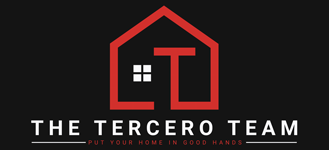- August 22, 2019
Test your mortgage IQ
Whats a "Mortgage" ?
"A mortgage is an agreement between a lender and a borrower that allows the borrower to finance the purchase of a home," explains Randy Hopper, senior vice president of mortgage lending at Navy Federal. A mortgage allows home buyers to pay a percentage of a home’s value upfront (this is called a down payment), while a bank or mortgage lender covers the rest. The home buyer then pays back the loan, plus interest, until they own the property outright.
What does "PITI" stand for?
PITI refers to the main components of a monthly mortgage payment: principal (the amount a homeowner has borrowed from a lender), interest (the cost of borrowing that money), taxes (property taxes), and insurance (homeowners insurance, private mortgage insurance, or some combination of the two).
You need to have a 20% down payment to purchase a home.
"The biggest myth we see people struggle with is the belief that a 20% down payment is required," Hopper says. "Not all mortgages require that large of a down payment.” There are lots of different types of mortgages, and what a particular home buyer qualifies for depends on their income, savings, credit history, and financial goals. For instance, active-duty military, veterans, and surviving spouses may want to consider a VA loan if they are looking for a zero-down option.
What's most important when saving for a home?
There are a couple of things to keep in mind when budgeting for a home: 1) purchase price (in general, the more expensive a home is, the more you can expect to put down upfront), 2) desired interest rate (a higher down payment could generate a lower interest rate), and 3) desired monthly payment (the more money you pay toward the purchase price, the less money you’ll have to borrow, which can make your monthly payments smaller). Determine what is important for you and your family and then save accordingly.
The two main types of mortgages are
“With a fixed rate, the interest charged to borrow the money remains the same for the life of the loan,” says Hopper. “This means that your monthly payment should be relatively consistent (slight changes may occur as a result of changes in tax or insurance rates)." An adjustable-rate mortgage (ARM), however, is a loan with an interest rate that changes. It typically offers a lower interest rate in the beginning, and then, after that initial term has passed, the rate goes up.
pre-qualification and pre-approval are the same thing.
While they sound similar, pre-qualification and pre-approval are actually quite different. For pre-qualification, lenders “analyze your income, debts, and assets and provide you with a ballpark estimate of what you can afford." Pre-approval, Hopper explains, “is a much more in-depth process and requires you to complete an application and provide documentation allowing the lender to perform an extensive review of your finances, including a credit report.” Plus, “a pre-approval letter will make a stronger impression on sellers, letting them know that you will be approved for a loan.”
Define "Mortgage Points."
Also known as "points" or "discount points," mortgage points are fees a buyer pays directly to the lender at closing in return for lowering the interest rate on the loan for a specific time period. According to Hopper, "Buying down the rate of your loan can both help you save on your monthly payment and lower the overall cost of your home loan. The key is understanding a few factors: 1) how long it will take to break even on the cost of buying the points and 2) how long you plan on owning the home."
What are closing costs, home inspections, and loan-origination fees all examples of ?
When it comes to buying a home, there’s more to budget for than just a down payment and monthly mortgage payments. Hopper says that, in addition to closing costs (typically 2–5% of the home’s price), homebuyers should budget for “the cost of the required documents, which include the property appraisal, home inspection, mortgage application fee, and loan-origination fees.”
Define "Rate Lock."
It's a guarantee from a lender that you’ll get a certain interest rate on a loan even if rates rise before you close on a house.
What's important when choosing a mortgage lender?
According to Hopper, "Everyone wants to focus on the mortgage interest rate, and that is important. But even more important is working with a lender you can trust." A mortgage can be a long-term relationship, and you want to make sure it’s a positive one.
Please share this quiz to view your results.

